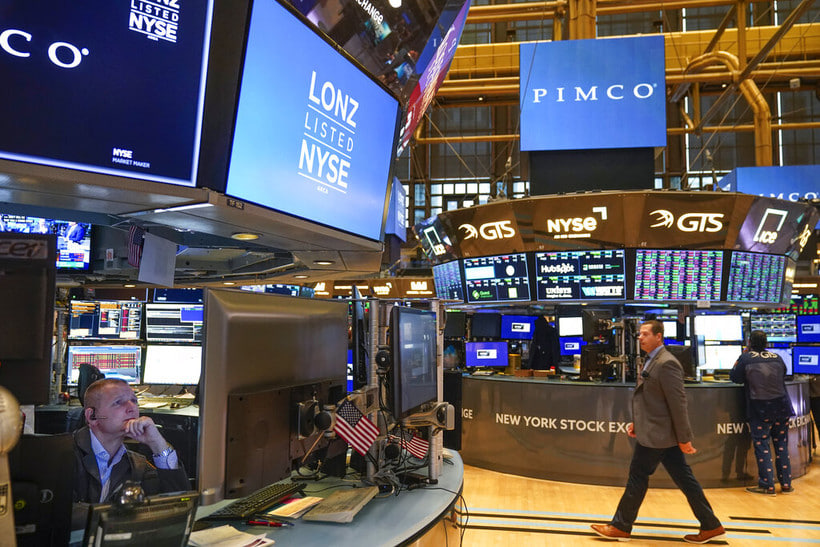AI Governance: A Global Imperative for Peace and Security (Meta Description: AI governance, international cooperation, global security, AI ethics, technological development, United Nations, China's role in AI)
Dive into the intricate world of Artificial Intelligence (AI) governance, where technological advancement intertwines with global security and ethical considerations. This isn't just another tech article; it's a deep dive into the critical discussions happening at the highest levels of international diplomacy, featuring insights from leading experts and a nuanced understanding of the challenges and opportunities that lie ahead. We'll explore the double-edged sword of AI, examining its potential for both good and evil, and dissecting the complex geopolitical landscape surrounding its development and deployment. Forget dry policy papers; this exploration is infused with real-world examples, compelling narratives, and a clear-eyed perspective on the path towards a safe and equitable future for AI. Prepare to be informed, challenged, and ultimately, inspired to engage in this crucial global conversation. From the intricacies of international law to the ethical dilemmas faced by developers, we'll unravel the complexities of AI governance and its crucial role in shaping a more peaceful and prosperous world. We'll delve into the specific proposals made by China, a major player in the AI arena, and examine how these proposals fit into the broader international framework. This isn't just about technology; it's about humanity's future. Are we ready to navigate this uncharted territory responsibly? Let's find out.
Artificial Intelligence: A Double-Edged Sword
The rapid advancement of Artificial Intelligence (AI) presents humanity with a paradox: a powerful tool capable of solving some of our most pressing global challenges, yet simultaneously possessing the potential to exacerbate existing inequalities and destabilize international peace. Ambassador Fu Cong's recent address to the UN Security Council aptly captured this duality, highlighting the urgent need for robust global governance frameworks to harness AI's benefits while mitigating its inherent risks. It’s not just about the tech; it’s about the human impact. Think Skynet from Terminator, but more nuanced. It's about ensuring this incredible technology doesn't become a weapon of mass destruction, but a tool for progress.
The sheer speed of AI's development is breathtaking. We're moving at warp speed, and frankly, the legislative and regulatory frameworks simply aren't keeping up. This lag creates a significant vulnerability, leaving us susceptible to unforeseen consequences. What happens when AI surpasses human intelligence? It's a question that keeps ethicists and policymakers up at night, and rightfully so.
China's Proposed Framework for AI Governance
China, a significant player in the global AI landscape, has put forward a comprehensive proposal for AI governance. This framework emphasizes a balanced approach, prioritizing both security and development. They're not just talking the talk; they're walking the walk, investing heavily in R&D while simultaneously advocating for responsible innovation. This isn't just lip service; it's a strategic move recognizing the potential benefits and risks inherent in this technology. Key components of this proposal include:
-
Proactive Risk Assessment: China advocates for a proactive approach to risk assessment and management, urging the international community to anticipate and mitigate potential threats before they materialize. This includes developing robust risk assessment testing systems. Think of it as preemptive security measures, anticipating issues before they snowball into crises.
-
Agile Governance: Instead of rigid, inflexible regulations, China suggests an agile governance model that can adapt quickly to the ever-evolving landscape of AI. Think of it as a dynamic system, constantly recalibrating based on new data and evolving challenges. This is crucial, considering the breakneck speed of AI development.
-
International Collaboration: China stresses the importance of international collaboration, emphasizing the need for a unified, globally agreed-upon framework for AI governance. They're pushing back against the idea of a few powerful nations dictating the rules, advocating for a truly inclusive approach. Think of it as a global village, working together for a common goal.
-
Technology for Governance: China is also advocating for the development of specialized AI technologies to assist in the governance of AI itself. This is a bit of a meta-approach, using the power of AI to manage and control the risks associated with AI.
-
Ethical Considerations: The proposal underscores the importance of aligning AI development with universally accepted ethical principles and human values. This isn't just about preventing harm; it's about creating a future where AI benefits all of humanity.
The Global Digital Compact and AI
The UN's Global Digital Compact plays a crucial role in this initiative. It provides a framework for international cooperation on digital issues, and AI is naturally a central component. This compact aims to bridge the digital divide, ensuring that the benefits of AI are accessible to developing nations as well. Think of it as the UN's blueprint for a fairer, more equitable digital world. Closing the gap between developed and developing nations is crucial; otherwise, we risk creating a world of haves and have-nots, exacerbating existing inequalities.
Addressing the AI Arms Race
One of the most pressing concerns surrounding AI is its potential military applications. The possibility of an AI arms race is not a far-fetched fantasy, but a very real possibility. Ambassador Fu Cong specifically warned against the use of AI as a tool for aggression or domination. This isn't just a theoretical debate; it has real-world implications that could lead to catastrophic consequences. We need to prevent the weaponization of AI before it's too late.
Frequently Asked Questions (FAQ)
Here are some frequently asked questions regarding AI governance:
Q1: Why is AI governance so important?
A1: AI is a powerful technology with the potential for both immense good and catastrophic harm. Robust governance is crucial to ensure its responsible development and deployment, preventing misuse and promoting equitable access.
Q2: What are the biggest risks associated with AI?
A2: The risks include the potential for autonomous weapons systems, algorithmic bias leading to discrimination, job displacement, and the erosion of privacy. These are real and present dangers that require immediate attention.
Q3: How can international cooperation help address these risks?
A3: International cooperation is essential for establishing common standards, sharing best practices, and coordinating efforts to prevent the misuse of AI. It's a global problem requiring a global solution.
Q4: What role can the United Nations play in AI governance?
A4: The UN can serve as a central platform for dialogue, negotiation, and the development of international norms and agreements on AI governance. It's the ideal forum to bring together nations to address these complex issues.
Q5: What is the role of individual countries in AI governance?
A5: Individual countries have a responsibility to develop and implement national policies that align with international norms, promote ethical AI development, and protect their citizens from potential harms.
Q6: What can individuals do to contribute to responsible AI development?
A6: Individuals can contribute by staying informed about the issues, supporting organizations working on responsible AI, and advocating for policies that promote ethical AI development. It's not just for policymakers; it's a collective responsibility.
Conclusion
The future of AI hinges on our collective ability to navigate the complex interplay between technological advancement, global security, and ethical considerations. Ambassador Fu Cong's address served as a stark reminder of the urgency of this task. The path forward requires a concerted global effort, with international cooperation at its core. By embracing a collaborative approach, prioritizing ethical considerations, and proactively addressing potential risks, we can harness the transformative power of AI for the betterment of humanity. The stakes are high, and the time to act is now. Let's work together to ensure that AI's potential is realized for the good of all.



